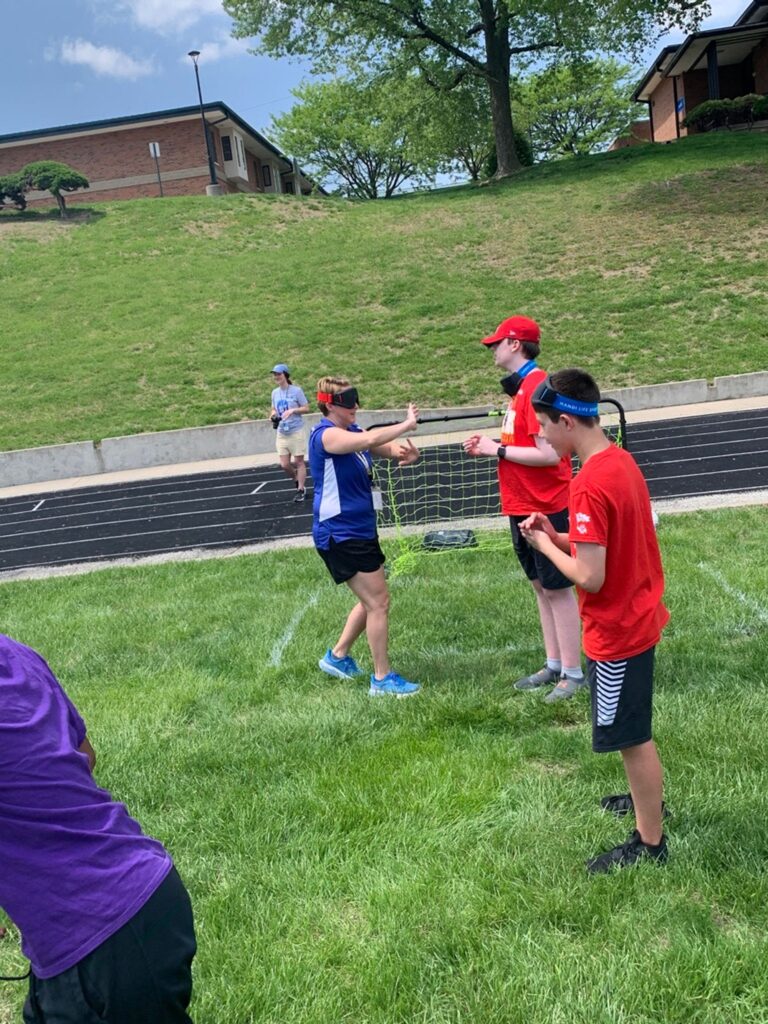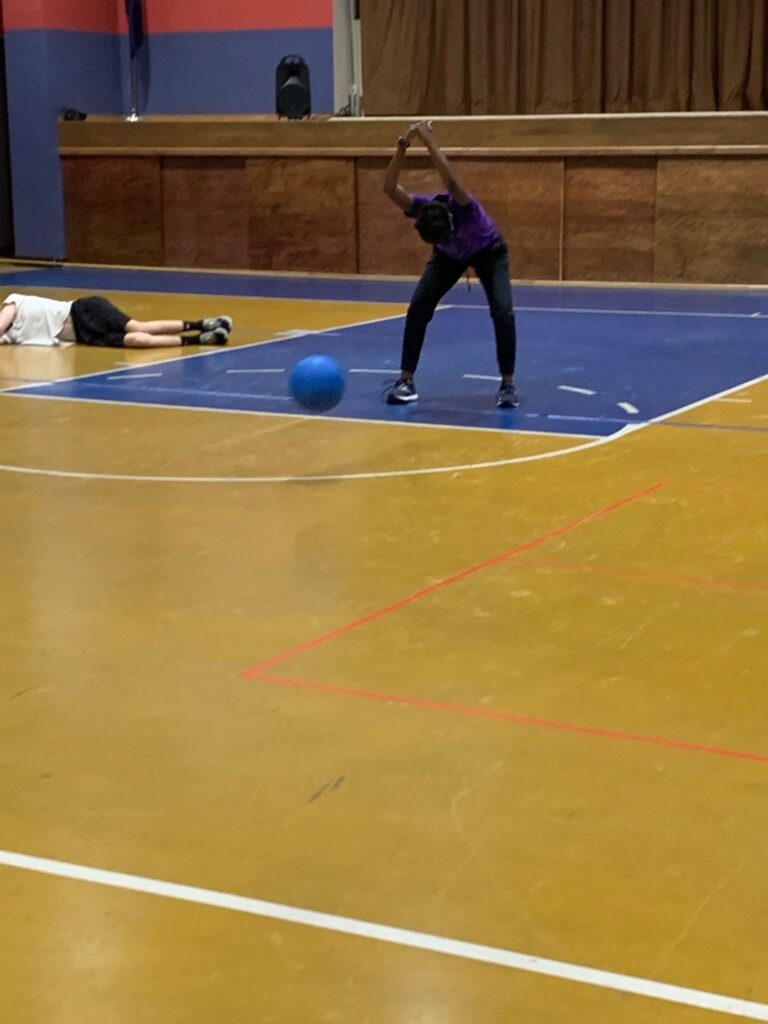The school plans to add blind soccer to its sports program, thanks to funding by Foreseeable Future and other organizations.

Jon Harding arrived at the Kansas State School for the Blind in 2013 armed with considerable experience in the field of special education. He spent time at the National Center on Deaf-Blindness (NCDB) and also served as an assistive technology specialist at the Missouri Technology Center for Special Education.
While at NCDB, an agency led by the Helen Keller National Center, Harding worked with a couple of staff members at KSSB on a distance mentorship project. This led to a position as the school’s Director of Instruction. In the summer of 2017, he was named interim superintendent before being given the position on a permanent basis the following year.
Harding is a big believer in diversity, equity and inclusion, particularly among students with disabilities. Part of that process is educating the general public on the need for accessibility and demystifying disability. In Harding’s mind, schools like KSSB are a lighthouse or a way station for children on their journey through life.
“Our vision is right help, right time, right location,” he explained. “It’s not magic, it’s an attitude. It’s (having) a desire to bring kids into a space where they’re safe and welcome.”
KSSB was first established around 1867 as Asylum for the Blind. It underwent several name changes before being given its current name of Kansas State School for the Blind during the 1991-92 school term.
As superintendent, Harding strives to help kids become excited about learning. As important as the principles of reading, writing and arithmetic are in the development of a child’s education, Harding believes there’s more to the learning process.
“Grades don’t tell us a lot. Unless a kid is excited about learning or an activity, they’re probably not going to make much progress. We try to always build enticing things for kids to do.”
That’s where sports and recreation activities come in. KSSB competes in the North Central Association of Schools for the Blind (NCASB), a conference comprised of 13 schools. Blind and visually impaired students participate in wrestling, track and field, swimming, goalball and cheerleading. As thrilling as it is to win a medal or event, Harding says, the experience is more about providing the opportunity to be part of a team, travel and put on a uniform, just as kids in regular public schools do.
“They love that. It’s very meaningful for them and their parents.”
One sport that has gained popularity in recent years is blind soccer. Modified for athletes with visual impairments, it’s played in over 60 countries and is the fastest-growing Paralympic sport in the world. The United States Association of Blind Athletes (USABA) sanctions blind soccer in the United States.
Numerous schools for the blind are incorporating blind soccer into their sports programs including Maryland, Virginia, and Washington State.
Thanks to a donation from the Victory Project, a foundation that strives to make soccer accessible through its Soccer for All Kids initiative, KSSB hopes to begin construction on its own soccer field sometime this fall. Since the school is a state agency, donations for projects are funneled through the KC Blind All-Stars, a nonprofit organization that supports the school.
Harding sees great potential for blind soccer and hopes to use it as another tool to show kids they can be athletes, regardless of skill level.
“We’d love to be a place where the United States Association of Blind Athletes would come and do a clinic here on our field. We will use the field we’re creating to do seminars and exhibitions, not only for kids who are blind but for typical kids.”
The Foreseeable Future Foundation worked with KSSB to sponsor a ranch camp last spring, where blind and visually impaired students had the chance to learn the skills of horsemanship. Harding reached out to CEO Griffin Pinkow to discuss receiving financial help for blind soccer.
After applying for a grant, KSSB received funding for equipment that will be used to promote blind sports away from campus. Harding and his staff will travel to public schools in the area and use the equipment to demonstrate various blind sports, including soccer.
The idea is modeled after the Science Technology Engineering and Math (STEM) mobile program, where public schools host demonstrations of how blind children use a Braille writer, white cane and other tools to live their daily lives. Harding believes the same approach can be used to bring attention to sports for the blind.
“(We’ll be) taking equipment on the road and talking to school staff and PE teachers, inviting kids in to try some of these things like blind soccer or goalball. That’s what we want to use the money for, to buy equipment to take on the road as a way to share accessibility of blind sports and safe movement with kids who may never come to a school for the blind.”
KSSB recently completed renovation for a new track, replacing the asphalt and rubber. The new soccer field will be adjacent to the track. These projects are part of Harding’s objective to create partnerships with organizations like Foreseeable Future Foundation and find ways to give blind students the full experience of education and physical activity.
“When you take action in a small way, it can really grow. We try to leverage the gifts we’ve been given with communities where our kids are living, playing and recreating every day… This is the magic formula that we’ve stumbled upon for ourselves; this is our home base. Come see it, we’ll give you a taste of that in your home. We’ll come to you.”

